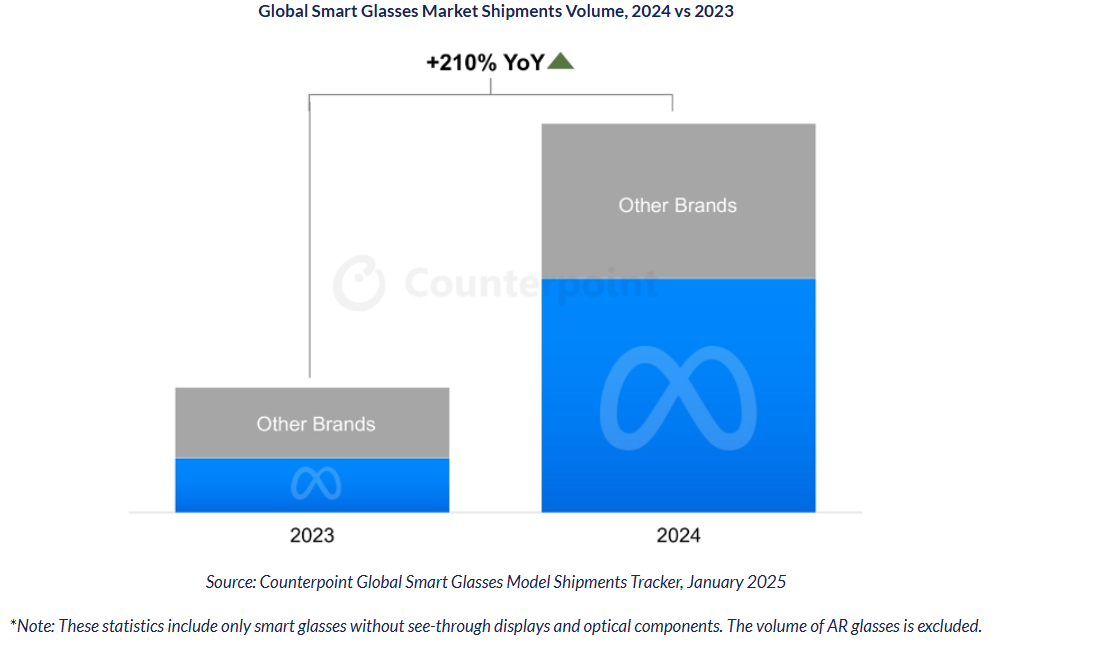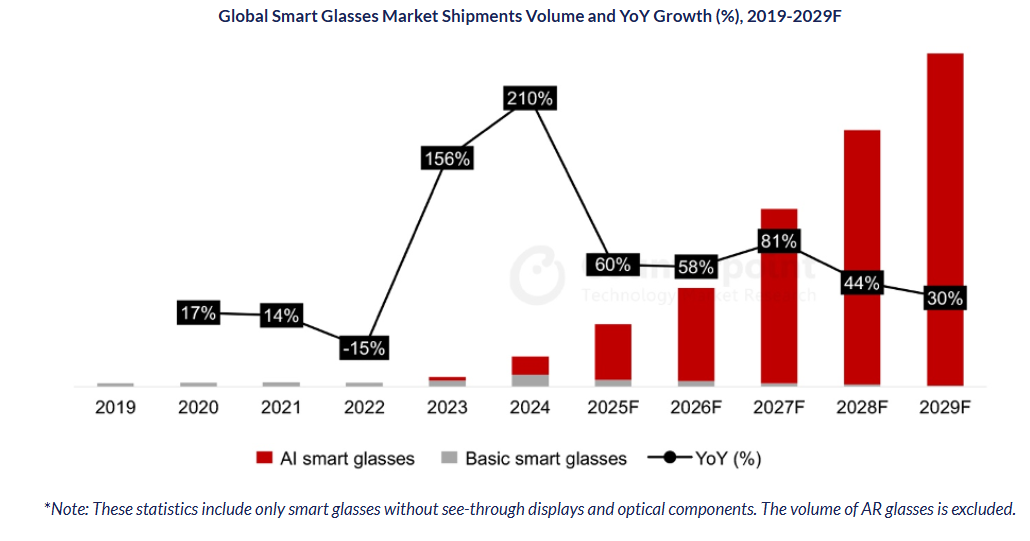"Post-Smart Era" Consumer Electronics War Erupts! Zuckerberg Ignites AI Smart Glasses Revolution Against iPhone Ecosystem
Fiscal news obtained by Zhitong Caijing APP reveals that Mark Zuckerberg, co-founder and CEO of Meta (META.US), is doubling down on "edge AI" in the future, planning to combine advanced AI models with wearable devices seamlessly. This move aims to challenge Apple's (AAPL.US) dominance in the broad consumer electronics market.
According to market sources, Meta will release its first pair of AI smart glasses featuring a high-definition electronic screen as early as this year-end, which is seen as a key step in challenging Apple's ecosystem. This "edge AI" smart glass, focusing on gesture control and single-eye screen, aims to become the best platform for artificial intelligence (AI) technology.
Without a doubt, the smart glasses with screens will be another milestone for Meta's true "AR+AI" smart glasses. The company has already previewed related technologies internally. Zuckerberg plans to release Hypernova 2 in 2027, which will overlap with Meta's true "AR+AI" model development.
The "post-smart era" description mainly highlights the trend, describing a situation where demand for smartphones continues to slow down, while AI smart glasses and other wearable devices equipped with AI models penetrate deeper into the market. The world is entering an era of peak smartphone demand, accompanied by the rise of various AI-enabled consumer electronics.
This smart glass device, codenamed "Hypernova," is expected to be priced over $1000, potentially reaching $1300-$1400. Insiders indicate that the final price may be determined near the release date. Meta currently sells its popular AI smart glasses, Ray-Ban Meta, for $299, with market sales exceeding expectations.
In a recent market statement, Zuckerberg explained his concept of "super AI" glasses. This idea includes an AI-powered glass that can "see, hear, and interact deeply" with users throughout the day, potentially replacing smartphones as the primary gateway to the digital world powered by AI.
"If super AI glasses can deeply understand our daily lives, understand our goals, and help us achieve them, then it will be the most useful tool," Zuckerberg wrote in his statement.
Meta has long been trying to replace iPhone's ecosystem with its smart consumer electronics products but has repeatedly failed. Now, he believes that Apple is significantly "behind" in edge AI, so Meta is increasing investment and recruiting top AI talent globally to challenge Apple's dominance.
Smart glasses may become the best platform for artificial intelligence technology
According to a report by Counterpoint Research, global smart glasses shipments increased 210% year-on-year in 2024, driven mainly by strong demand for Ray-Ban Meta smart glasses. As a result, global smart glasses market shipments surpassed 2 million units, setting a record growth rate.

According to a joint statement by EssilorLuxottica SA's CEO Francesco Milleri and Vice President Paul du Saillant, "We are leading the revolution of glasses as the next-generation computing platform, where artificial intelligence, sensors, and rich healthcare infrastructure will be seamlessly integrated, empowering humans and releasing their full potential." Ray-Ban Meta's success, the release of Oakley Meta Performance AI glasses, and Nuance Audio's positive response have been important milestones in this new field.
According to Counterpoint's definition, Ray-Ban Meta smart glasses are the first AI-powered smart glasses on the market. They feature integrated NPU SoC, advanced cameras and audio components, which enable core intelligent functions such as photo/video capture and audio playback. These technologies support a wide range of applications.
After the release of Ray-Ban Meta smart glasses, global demand for smart glasses surged. According to Counterpoint's report, global smart glasses shipments grew 156% year-on-year in 2023 and 210% in 2024, with Meta occupying over 60% market share in 2024.
As edge computing, 5G networks, and AI technologies rapidly advance, edge consumer electronics devices are becoming increasingly capable of real-time data processing and seamless interaction with cloud-based AI models. This also enables smart glasses not only to collect real-time environmental data (such as visual, auditory, and location information) but also to locally process data and interact with cloud-based AI models in real-time.

Counterpoint expects that with the success of Ray-Ban Meta smart glasses, a wave of unprecedented AI-powered smart glasses will emerge, from supplier companies providing reference designs to eyewear brands launching commercial products. The organization predicts that global smart glasses market growth will reach 60% in 2025 and maintain an average annual compound growth rate exceeding 60% from 2025 to 2029.
